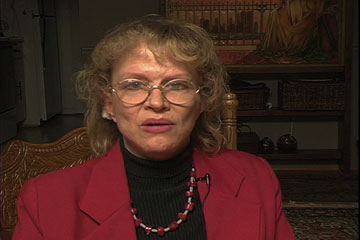EPA World Trade Center whistleblower found not guilty of death threat – Final decision in Dr. Cate Jenkins v. EPA
On 3/1/18, the US Department of Labor (DOL) Administrative Review Board (ARB) issued a final decision in the whistleblower case of Dr. Cate Jenkins v. the Environmental Protection Agency (EPA). This ARB decision affirmed the 4/15/15 recommended decision by a DOL Administrative Law Judge (ALJ), which found that EPA fired Jenkins because of her whistleblowing regarding toxic dust from the collapse of the World Trade Center (WTC) on 9/11/01. The ARB described Dr. Jenkins' whistleblowing as follows:
Beginning in 2001, Jenkins made numerous disclosures and complaints alleging that the EPA engaged in improper laboratory testing, falsified a regulation governing exposure safety standards, and knowingly covered up the toxic properties of the dust emanating from the September 11, 2001 ("9/11") World Trade Center (WTC) disaster. The improper testing and cover-up, Jenkins claimed, contributed to excessive and harmful toxic dust exposures of WTC "First Responders" and others sufficient to later cause respiratory and other serious and debilitating disease. Jenkins disseminated these disclosures and complaints to her supervisors and others at EPA, to the EPA Inspector General's Office, members of Congress, and the Federal Bureau of Investigation, as well as to state officials, state elected representatives, law firms representing WTC First Responders, citizens, and the media. Her disclosures were posted on web sites and repeatedly quoted in the press and television broadcasts, and by members of Congress.
In 2010, EPA terminated Jenkins on a false charge that she made a death threat to her supervisor. The final 3/1/18 ARB decision upheld the 4/15/15 ALJ finding that this claim was not credible, based on the demeanor and consistency of Jenkins' testimony compared to that of her supervisor (Robert W. Dellinger), as well as the circumstantial evidence regarding the alleged threat also made it not credible. (See p. 35 of the ARB decision.)
The ARB decision also affirmed the 4/15/15 ALJ default judgement in favor of Jenkins. The default judgement was for the repeated and elaborate efforts by EPA lawyers to withhold and in some cases destroy evidence exonerating Dr. Jenkins. The ARB decision found that the "misconduct engaged in by the EPA and its legal counsel in this case will simply not be tolerated." The ARB also found that sanctions were appropriate because "one should be able to expect better of public servants than that evidenced by the EPA and its lead counsel in this case."
During discovery, EPA withheld over 1000 key documents. They were not produced until AFTER a hearing before the ALJ. These post-hearing documents provided evidence of retaliatory animus by EPA over Jenkins' whistleblowing. But most importantly, they contained evidence refuting the earlier testimony of Agency witnesses during the hearing and depositions. (While testifying, these witnesses may have thought the withheld documents would never surface.) Further, EPA destroyed all the emails and other documents of the official who proposed Jenkins' termination (Maria Vickers, Deputy Director of the Office of Resource Conservation and Recovery (ORCR)). This was not only a violation of federal records laws, but also a violation of Agency procedures once litigation efforts started (litigation hold).
In other words, Jenkins won her case not only because the alleged death threat was found not to be credible, where the real reason was retaliation for whistleblowing, but also because EPA had engaged in such "egregious misconduct" during discovery so as to severely prejudice Jenkins' case.
Dr. Jenkins expressed her hope that this case is finally over and her appreciation for the support she received over the past 8 years: "I could never have finished this journey without the tireless support of my attorneys at the Public Employees for Environmental Responsibility (PEER)." She also said that the current laws are woefully inadequate to protect whistleblowers. Very few win out of those who file cases. Most do not even file cases, because there is a strict 30-day limit from the time retaliation took place, which is unreasonable. As a result, people are discouraged from whistleblowing in the first place.
Dr. Jenkins is the only federal employee to have won two whistleblower suits against an agency over two different issues of public concern. Her first whistleblower decision (5/18/94) found EPA retaliated because of Jenkins' disclosures on EPA's and industry's misuse of data on dioxins (affecting Vietnam veterans and others exposed to dioxins in Agent Orange). In recent court filings in her WTC toxics whistleblower case, the agency stated: "EPA concedes that Appellant [Dr. Jenkins] is a notorious whistleblower …" The EPA attorney also testified that Dr. Jenkins had violated no ethics rule by her disclosures to Congress, the IG or FBI, saying only that they "problematic" to EPA. Dr. Jenkins has never leaked any internal information, much less confidential or secret information, in any of her disclosures.
Link to case decision
|


